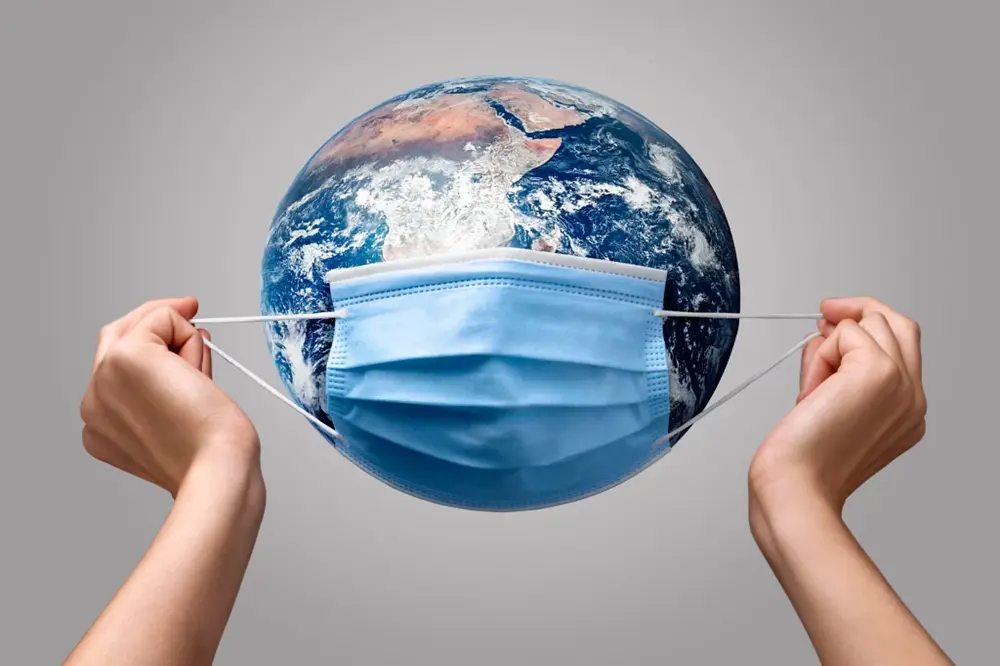Despite the global vaccination efforts and emerging treatments for COVID-19, reports of people contracting COVID-19 more than once are surfacing, which raises questions and concerns.
If you’ve gotten COVID-19 in the past, can you still get it in the future?
What is COVID-19 reinfection?
Reinfection with COVID-19 refers to contracting the virus again after a previous infection has occurred. With over 101 million reported cases in the U.S. alone, this phenomenon has been a concern due to various factors contributing to reinfection risks. Variants like Delta and Omicron are highly contagious and can evade existing immunity, which poses a challenge for overall immunity. The timing and severity of reinfections vary, with studies showing different results on immunity duration after initial infection.
Vaccination remains critical in preventing COVID-19 reinfections, as it decreases illness severity and contributes significantly to personal and community safety.
Why you can get COVID-19 more than once
COVID-19 reinfections can occur due to various reasons, including:
- Decreasing vaccine immunity over time
- Reduced adherence to safety measures
- The emergence of new and highly contagious variants that can evade existing immunity
- Waning immunity acquired from initial infections
- Waning vaccinations Studies show that reinfections can vary in timing and severity, with some occurring within a short period after the initial infection.
Regardless of vaccination status, anyone can be reinfected.
Immunocompromised individuals, in particular, face higher risks of severe reinfections.
Are variants to blame for reinfection?
Variants like Delta and Omicron known for their high contagiousness, can evade existing immunity and increase the likelihood of reinfections.
New variants such as XBB.1.5 are influencing the persistence and recurrence of reinfections. While reinfections within 90 days are rare, they can occur, especially with the presence of highly transmissible variants.
Can you get Omicron twice?
While research is ongoing, cases of reinfection with Omicron have been reported, suggesting that prior exposure does not guarantee full protection.
The highly transmissible nature of the Omicron variant raises the likelihood of reinfection among individuals. With this, continue implementing preventive measures and vaccination efforts.
To reduce the risk of reinfection, continue to:
- Monitor symptoms
- Practice good hygiene
- Wear masks
- Adhering to public health guidelines

If you get COVID-19 twice, are the symptoms the same?
Symptoms of COVID-19 upon reinfection can include:
- Fever
- Cough
- Shortness of breath
- Fatigue
- Body aches
- Loss of taste or smell
- Gastrointestinal issues
While some may have similar symptoms in both infections, others might experience a different set of symptoms or a varying degree of severity.
Who’s at risk of COVID-19 reinfection?
If you’re unvaccinated or if your immune system is compromised, you’re at a heightened risk of COVID-19 reinfection.
How can you prevent reinfection?
To minimize the risk of COVID-19 reinfection, prioritize vaccination by following the public health guidelines and consider booster shots when eligible, especially if you’re immunocompromised.
Additionally, continue to follow recommended safety measures, such as:
- Maintaining good hand hygiene
- Wearing masks in a crowded setting
- Practicing social distancing
- Avoiding large gatherings
- Staying informed about COVID-19 updates
- Promptly seeking medical advice if symptoms arise
Frequently asked questions
Can you get Omicron twice?
Experiencing a reinfection with the Omicron variant is possible, as with other COVID-19 strains. Factors such as waning immunity, variant characteristics and individual immune responses contribute to the likelihood. Vaccination and adherence to safety measures remain crucial for protection.
If you get COVID-19 twice, are the symptoms the same?
When experiencing COVID-19 twice, symptom consistency varies due to immune responses, variants and individual health. Repeated infections may exhibit milder symptoms, but new strains can cause distinct presentations. Consult your healthcare provider for accurate assessment and guidance.
Who’s at risk of COVID-19 reinfection?
Individuals at risk of COVID-19 reinfection include those with waning immunity from initial infections or vaccinations, unvaccinated or immunocompromised individuals, and those exposed to highly contagious variants.
How can you prevent reinfection?
To prevent reinfection, follow safety measures like masking and distancing. Booster shots for immunocompromised individuals also increase protection.
Do COVID-19 variants play a role in reinfections?
COVID-19 variants like Delta and Omicron significantly contribute to reinfections by evading existing immunity and increasing your susceptibility.
Key takeaway
You can definitely get COVID-19 more than once. COVID-19 reinfections can occur due to factors such as waning vaccine immunity, reduced adherence to safety measures and emerging variants that are highly contagious.




















































